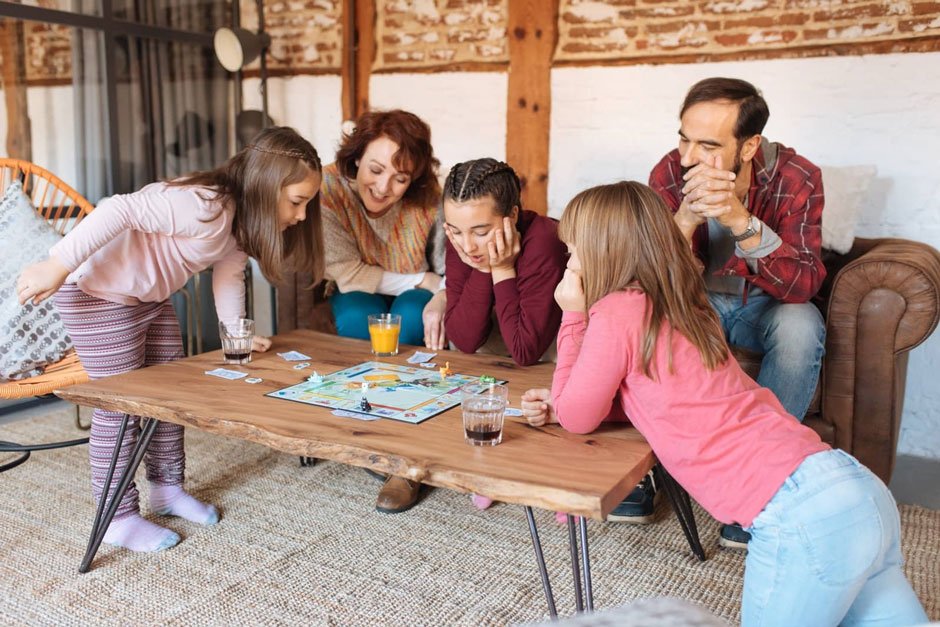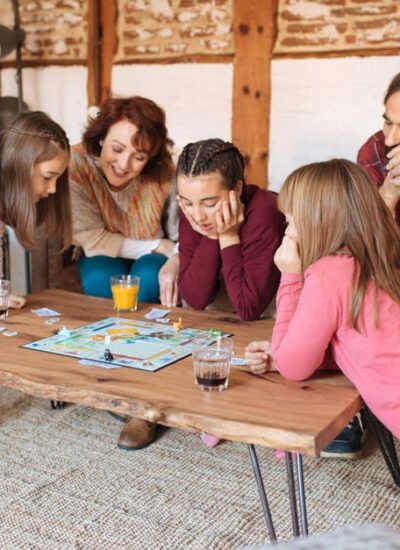 Shared experiences and traditions are what make families stronger together. Busy schedules can pull people apart, but setting aside time for familial traditions can be the perfect bridge to bring everyone back together after a long day. Families are strongest when they share experiences that bring generations together.
Shared experiences and traditions are what make families stronger together. Busy schedules can pull people apart, but setting aside time for familial traditions can be the perfect bridge to bring everyone back together after a long day. Families are strongest when they share experiences that bring generations together.
The ways families connect may look different across cultures, but the underlying goal is universal: to create rituals that foster belonging. From preparing meals to storytelling, from outdoor adventures to quiet evenings with games, these shared activities hold the power to transform relationships and anchor family members in a common history.
The Role of Ritual in Family Life
Think back to any familial traditions that you had growing up. Taking walks with the family or gathering around the dinner table to talk about your days. These are all simple events that brought you closer together as a family, and remain in your memory, despite being a simple gesture of activity.
Psychologists have long noted that families with strong rituals often report greater resilience during times of stress. This is because rituals create a sense of continuity. They are reminders that even as life changes, certain practices remain constant, reinforcing emotional stability for children and adults alike.
Activities That Build Connection
The best family traditions are the ones that were simple. The strongest family bonds come through activities are seem benign in nature.
- Cooking together: Preparing meals as a group gives children practical skills while providing adults a chance to pass down family recipes.
- Storytelling: Sharing stories from the past helps children understand their roots and gives older generations the chance to impart wisdom.
- Volunteering: Families who engage in service together learn teamwork while supporting their community.
The thing that separates these traditions and makes them so meaningful is the connection with family. They’re simple tasks that you can do on your own, but when done with your family, it opens up a world of emotional connection and meaning.
Each of these activities builds cooperation and deepens mutual understanding. They also generate opportunities for family members to express themselves in ways that might not happen during routine conversations.
Games as Tools for Togetherness
Traditional games are one of the oldest ways families have connected, and they continue to thrive because they blend entertainment with relationship-building.
Mahjong is one example of a game that has carried meaning across cultures and generations. Families often gather around the table for this activity, which combines strategy, memory, and conversation. Mahjong has been enjoyed for centuries, making it one of the most enduring traditional games that still brings people together today.
The simplicity of pulling out a mahjong set for a quick game with the family is a tradition that holds up, even today.
Other games like dominoes, backgammon, and card games provide similar opportunities for bonding. Friendly competition with the family is a sure-fire way to bring everyone together. Games like these offer a chance to play together, be in the same space, and enjoy the relationship you have with the ones you love.
The value of games lies not only in the fun but also in the rituals they create.
Communication Through Play
Communication is huge for a healthy relationship, especially with your family, and family games are one of the best ways to inspire communication. Children find it easier to open up about their feeling during relaxed play, rather than a structured conversation about what’s going on in their life. Gaming together with your family is a great way for parents to check in on their kids and learn about how things are really going.
Couples have even found games to be a great intermediary to help them discuss things. Games act as a shared hobby that allow couples to connect and have fun, while providing a space for difficult communications.
Health and Cognitive Benefits
Spending time with your family through household traditions, or fun weekly activities is a fantastic way to improve your mental and physical health. Games that involve memory, strategy, and focus can support cognitive strength, especially in older adults. Physical activities, such as hiking or dancing, improve health while fostering teamwork.
Fun, mentally stimulating, or physically engaging activities with the family are the best of all worlds.
When families choose activities that engage both mind and body, they not only spend meaningful time together but also encourage long-term well-being. This dual benefit adds another layer of value to traditions and hobbies.
Building Lasting Memories
Memories are the core of family traditions. The goal of time together is to build experiences that everyone will remember fondly, and to create time that the family will cherish. Holiday meals, camping trips, and game nights with the family are all experiences that family will remember and traditions that children will bring along with them through life.
The beauty of memories is that you don’t need material possessions to build them. Families build memories through time spent together.
Enjoying memories and traditions through shared activities is the way families connect, and grow together.
The Future of Family Traditions
As technology continues to shape modern life, families will need to be intentional about carving out time for shared activities. Screens and digital communication often compete for attention, but the value of face-to-face connection remains irreplaceable.
Future traditions may blend new tools with old practices. A virtual storytelling session for relatives in different countries, or a digital app that helps track family volunteering, may become as common as a classic board game. The key is not the medium but the intention behind the activity.
By prioritizing shared time, families create resilience and strengthen bonds that sustain them through life’s challenges.
A Legacy of Connection
While you can’t build bonds in a day, you can do it by practicing traditions and sharing time. Whether you’re preparing a meal, telling stories, volunteering together, or enjoying a round of Mahjong, any moment can be an opportunity to establish belonging and continuity across generations.
When families commit to these shared experiences, they are not just filling time. They build legacies of connection that members will remember, retell, and pass on for years to come.





Leave a Reply